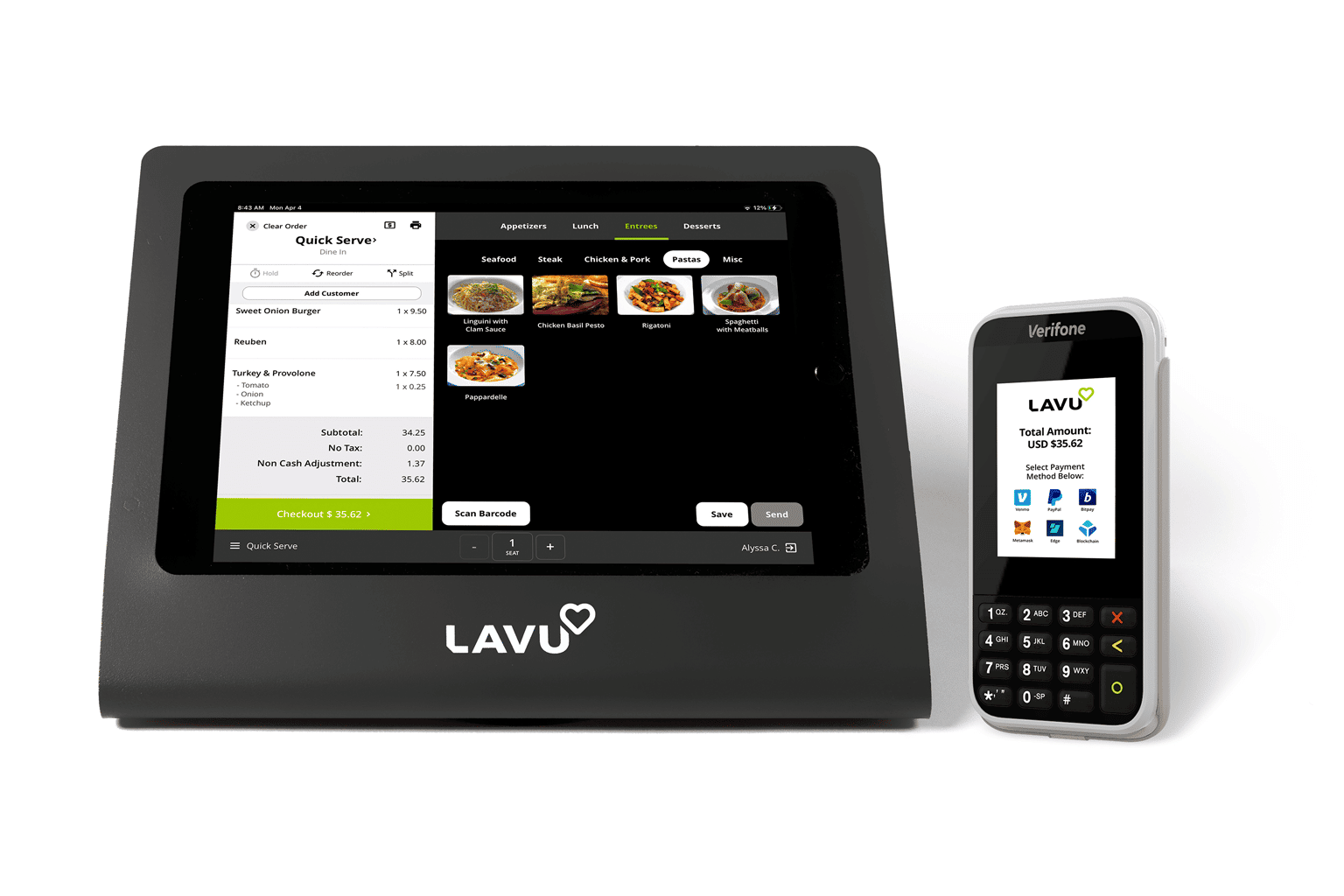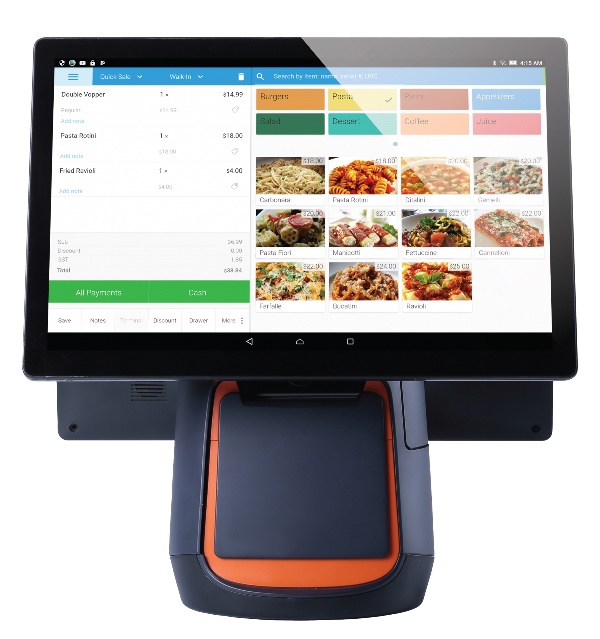Understanding the Importance of POS Software in Modern Retail Workflow
In today's retail landscape, the duty of POS software program has actually come to be significantly considerable. These systems have changed from standard cash money signs up to complex devices that enhance numerous elements of operations. They not only enhance purchases however also give insights that can form organization strategies. Recognizing how these systems influence client experience and inventory administration is essential for any kind of store looking for to continue to be affordable. The ramifications of these innovations necessitate further expedition.
The Development of POS Software Program: From Transaction Handling to Comprehensive Solutions
As retail environments progressed, so also did the functionality of Point of Sale (POS) software program, which shifted from fundamental purchase handling systems to advanced, all-encompassing solutions. At first, POS systems primarily managed sales purchases, managing sales register and printing invoices. Nonetheless, with developments in technology, these systems started integrating supply administration, client partnership monitoring, and sales analytics. Retailers recognized the requirement for real-time data and smooth procedures, prompting the development of cloud-based POS solutions that allowed for remote accessibility and boosted scalability.Additionally, the increase of mobile commerce necessitated POS systems to adapt, allowing deals by means of tablet computers and smart devices. This change not just structured operations however also boosted reporting capacities, permitting merchants to make educated decisions based on detailed information insights. Consequently, modern POS software has actually come to be essential to retail technique, functioning as a multifunctional tool that sustains numerous operational facets beyond plain purchase processing.
Enhancing Client Experience With Advanced POS Includes
While lots of sellers concentrate on functional effectiveness, progressed POS attributes progressively focus on enhancing the client experience. Modern POS systems now provide performances such as mobile payment options, personalized promotions, and consumer commitment programs, which promote an even more engaging shopping atmosphere. By streamlining the check out process, these systems minimize wait times, permitting customers to complete deals promptly and efficiently.Additionally, incorporated customer relationship administration (CRM) attributes enable merchants to track acquiring actions and choices, assisting in customized marketing efforts. This customization not just develops consumer loyalty however also boosts general satisfaction.Moreover, progressed analytics provided by POS systems can assist stores recognize consumer patterns and choices, enabling them to make educated choices concerning product offerings and store designs. Ultimately, the concentrate on consumer experience via innovative POS features not just meets contemporary consumer expectations yet additionally drives repeat business and increases income for sellers.
Improving Inventory Monitoring With Integrated POS Systems
Integrated POS systems play a necessary duty in improving inventory monitoring by automating processes that traditionally required significant hands-on initiative (Restaurant POS Software). These systems enable sellers to track inventory degrees in real time, getting rid of discrepancies that often develop from hands-on supply matters. With functions such as barcode scanning and automated stock replenishment alerts, companies can keep perfect inventory levels without overstocking or stockouts.Furthermore, integrated POS systems promote exact projecting by assessing historical sales data, allowing stores to make informed buying decisions. This anticipating capacity helps companies adapt to transforming consumer demands and seasonal patterns a lot more effectively.Additionally, the centralization of inventory data across several sales networks improves visibility, allowing stores to handle their stock a lot more successfully. Inevitably, the integration of POS systems into stock management simplifies procedures, minimizes human mistake, and contributes to raised profitability
Real-Time Sales Tracking and Coverage for Informed Decision-Making
Exact inventory monitoring lays the foundation for efficient sales monitoring and coverage. Real-time sales tracking makes it possible for merchants to keep an eye on sales performance as it happens, providing immediate insights right into consumer purchasing patterns and fads. This capability allows companies to respond swiftly to variations sought after, enhancing stock levels and minimizing overstock or stockouts.Moreover, integrated POS systems promote the generation of in-depth records, highlighting key metrics such as sales by category, amount of time, and individual items. Such coverage capacities empower sellers to make data-driven decisions, identifying effective strategies and locations needing improvement.

The Duty of POS Software Application in Customer Connection Management
POS software plays a necessary role in improving client relationship management by enabling retailers to carry out customized marketing approaches. By assessing consumer data, organizations can tailor interactions and promos to satisfy private preferences. In addition, these systems assist in the growth of boosted loyalty programs that urge repeat business and enhance consumer involvement.
Personalized Advertising Methods
As stores progressively look for to enhance consumer loyalty and engagement, individualized advertising and marketing approaches have become a necessary element of reliable customer partnership management. POS software plays a vital role in this process by accumulating and evaluating client data, making it possible for retailers to tailor advertising and marketing initiatives to private preferences and purchasing habits. By leveraging understandings from purchase histories, sellers can create targeted promos and personalized communications that resonate with customers, promoting a deeper link. Additionally, the combination of POS software program with client relationship monitoring systems allows for seamless monitoring of consumer interactions, guaranteeing that advertising and marketing approaches remain pertinent and timely. This data-driven method not just enhances client contentment yet likewise drives sales and urges repeat business, solidifying the merchant's market placement.
Improved Loyalty Programs
Sellers are increasingly acknowledging the value of loyalty click to investigate programs in fostering long-lasting customer partnerships and improving total engagement. POS software program plays a vital role in the development and monitoring of these programs, enabling retailers to track client choices, acquisitions, and actions successfully. By leveraging information analytics, services can develop individualized incentives and incentives that reverberate with private consumers, therefore raising involvement in loyalty programs. In addition, POS systems make it possible for seamless combination with digital platforms and mobile apps, promoting simple accessibility to benefits and promotions. This not just enhances customer complete satisfaction but also drives repeat service. Eventually, POS software application equips sellers to cultivate much deeper links with their clientele, changing periodic shoppers into loyal patrons with targeted and meaningful involvement methods.
Integrating POS Equipments With Shopping Operating Systems for Omnichannel Success
To attain true omnichannel success, seamless assimilation in between point-of-sale (POS) systems and e-commerce platforms is essential. This integration enables retailers to unify their stock management, guaranteeing that product accessibility is precisely reflected across both online and physical stores. Consumers take advantage of a cohesive buying experience, where they can conveniently switch over in between networks without coming across discrepancies.Furthermore, integrated systems facilitate real-time information sharing, making it possible for companies to assess client actions and preferences better. This data-driven technique allows merchants to tailor advertising methods and maximize supply levels, ultimately boosting consumer complete satisfaction and driving sales.Additionally, the capability to process transactions throughout platforms streamlines operations, lowering the threat of mistakes and enhancing total effectiveness. As merchants significantly embrace omnichannel strategies, the combination of POS systems with e-commerce platforms continues to be a vital element in achieving sustainable development and preserving competitive benefit in the vibrant retail landscape.

Future Patterns in POS Modern Technology and Their Impact on Retail Procedures
As retail operations advance, future fads in POS innovation are readied to reshape the landscape considerably. The increase of cloud-based remedies, advancements in mobile POS systems, and the advantages of AI integration are amongst the vital advancements expected to enhance effectiveness and consumer experience. These improvements promise to streamline processes and promote a much more vibrant retail environment.
Cloud-Based Solutions Increase
With the increasing dependence on technology, cloud-based POS remedies are transforming retail procedures by using improved flexibility and scalability. These systems enable merchants to gain access to real-time data from anywhere, promoting better decision-making and customer support. By leveraging cloud facilities, companies can minimize upfront expenses related to hardware and software program installments while ensuring seamless updates and maintenance. In addition, cloud-based solutions sustain multi-location monitoring, permitting retailers to synchronize stock and sales throughout numerous outlets effortlessly. This versatility is necessary in today's busy market, where consumer choices change swiftly. As even more retailers adopt these remedies, they can anticipate enhanced functional efficiency and a much more receptive strategy to market demands, ultimately improving customer fulfillment and commitment.
Mobile POS Innovations
The evolution of retail technology continues to form procedures, particularly with the rise of mobile POS advancements. These systems make it possible for retailers to process deals anywhere within the shop, boosting consumer involvement and improving checkout processes. Mobile POS options enhance stock monitoring by permitting instant access to supply levels, helping personnel aid consumers much more successfully. Furthermore, they assist in personalized purchasing experiences with integrated customer information and loyalty programs. As mobile phones become progressively advanced, merchants are embracing functions such as contactless repayments and digital invoices, additionally enhancing the purchasing trip. The change towards mobile POS not just boosts operational this efficiency however also straightens with the growing customer preference for convenience, ensuring that stores remain competitive in a quickly developing market.
AI Combination Benefits
AI assimilation represents a transformative jump in POS modern technology, using sellers a myriad of advantages that improve operational effectiveness and customer experience. By leveraging artificial intelligence algorithms, sellers can analyze acquiring patterns and enhance inventory administration, reducing waste and stockouts. Furthermore, AI-powered analytics provide tailored marketing suggestions, enabling targeted promotions that raise customer interaction and loyalty (Restaurant POS Software). Chatbots and online assistants improve client solution, allowing for quicker resolution of inquiries and boosting the overall buying experience. Anticipating analytics can additionally forecast need fads, allowing smarter staffing and resource allowance. Eventually, the integration of AI in POS systems empowers sellers to make data-driven decisions, promoting an one-upmanship in an ever-evolving retail landscape
Regularly Asked Inquiries
What Are the Prices Related To Implementing POS Software?
The costs connected with executing POS software program can consist of software application licensing costs, equipment expenses, installation costs, training prices, and continuous upkeep. Each factor adds to the overall investment required for a successful implementation.
Exactly How Can Little Retailers Gain From POS Solutions?

What Hardware Is Required for a POS System?
A normal POS system needs vital hardware parts, including a touchscreen display, cash cabinet, barcode scanner, receipt printer, and repayment terminal. These aspects collaborate to assist in efficient deal handling and supply administration for retailers.
Can POS Software Application Be Custom-made for Particular Retail Needs?
POS software program can undoubtedly be customized to fulfill particular retail needs. This versatility permits companies to customize features, interfaces, and coverage tools, boosting operational performance and offering a more personalized experience for both personnel and customers.
How Safe Is Consumer Data in POS Solutions?
The protection of client information in POS systems varies commonly. Several systems apply security, secure access controls, and regular updates, but vulnerabilities can still exist, requiring continuous vigilance and positive procedures from sellers to safeguard delicate details. By improving the checkout process, these systems decrease wait times, permitting clients to total transactions swiftly and efficiently.Additionally, incorporated consumer partnership monitoring (CRM) attributes enable merchants to track purchasing preferences and habits, assisting in customized advertising initiatives. As retailers progressively seek to improve client loyalty and involvement, personalized marketing strategies have emerged as a vital element of effective consumer relationship management. Furthermore, the assimilation of POS software application with client relationship management systems allows for seamless tracking of customer interactions, guaranteeing that marketing strategies continue to be timely and pertinent. Clients benefit from a natural purchasing experience, where they can quickly change between channels without running into discrepancies.Furthermore, integrated systems promote real-time information sharing, making it possible for businesses to assess client habits and preferences more properly. Little merchants can benefit from POS systems via boosted transaction performance, streamlined inventory administration, and enhanced client understandings.